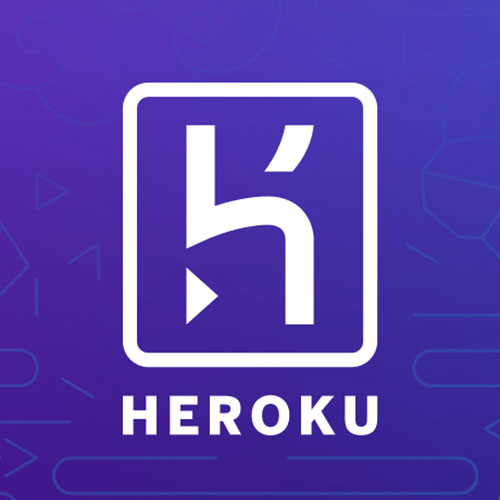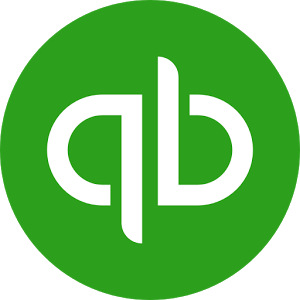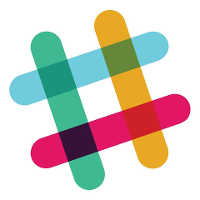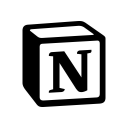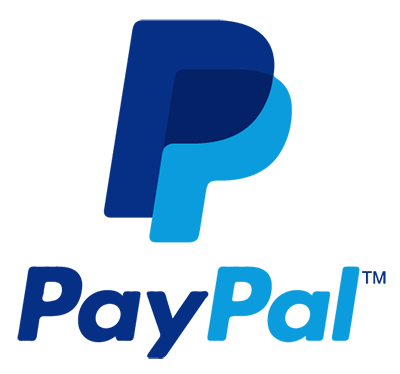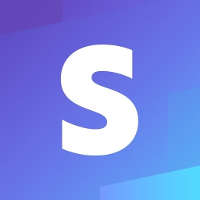How I Left My $500M Company To Start A $50K/Month Education Marketplace
Hello! Who are you and what business did you start?
Why hello! I’m Buford Taylor, founder of Closing Credits, an education marketplace for creators.
Our customers are both creator experts and amateurs. Experts have all this knowledge trapped in their heads, but they are limited by time, their ability to teach, and their distribution. Closing Credits helps them build a better product faster and find people who want to learn from them.
Think of it like this:
- You are a super skilled anime illustrator (or voice actor, or audio engineer, etc).
- You want to teach others how to do that (because of legacy, extra income, personal brand, etc).
- Like 12 people follow you on social media, and while you are good at anime, you aren’t trained at teaching.
That’s where Closing Credits come in. We help you do that, make your courses better, and even find people to teach your courses for you given enough time.
For the amateur creator, we carefully choose which teachers we let teach. We curate, synthesize and format the courses to meet certain standards.
It’s been around for 11 months and it has just crossed the $500k revenue mark.

What's your backstory and how did you come up with the idea?
I grew up poor in a rural part of Oklahoma, so when the internet became a thing in the 90s, I was all over it. I worked odd jobs enough to buy a computer and I joined a website called the Voice Acting Alliance (which shut down sadly a few years ago). With that and my Starcraft addiction, I knew I wanted my career to be around the internet.
The launch felt like cheating. Within the first hour, we had made $1K, and within the first 30 days, we were at $10K MRR.
I took on a bunch of debt and I moved to San Francisco, where I became the 10th employee of a tiny company called Eventbrite. Turns out that was a really good move because it eventually IPO’d and is worth over a billion dollars now. During this time, I lived at my desk, sometimes sleeping in the office, just to get good enough to be a really solid engineer.
The hard work bled into other fields, like marketing, product development, business, and finances. I got curious and began to dip my hands in many things.
After 8 years, I left San Francisco – moving to London to work on a different startup – and I needed a voice actor for one of the explainer videos we were going to do. That’s when I remembered Voice Acting Alliance and all the hours I spent creating audio dramas in the 90s. It occurred to me that this is all still happening on YouTube/Twitch/TikTok/etc, but no one is helping amateur creators level up their skills.
It was easy to figure out why. There is no money for amateur creators. If you’re 19 years old and you want to dub over a Japanese cartoon, you don’t have any money to spend on a saas product to make that dub better.
I built a product anyway.
“Get the audience first. Monetize later.” - probably someone.
Five years later, I had about half a million people using a side-project I worked on called Casting Call Club (CCC). CCC makes laughably little money. I ran it at a loss for the first few years.
Here’s where it gets interesting.
I was the founding engineer and head of engineering at Reforge. I joined in May 2017 and left in Aug 2021, a little over 4 years. When I joined, it was worth around ~$0. It's now worth around $500M.
Reforge is an education marketplace for tech employees. Experts have all this knowledge trapped in their heads, but they are limited by time, their ability to teach, and their distribution. Reforge helps them build a better product faster and find people who want to learn from them.
Sound familiar?
After a couple of years of Reforge, I sought a co-founder for Closing Credits, someone who knew their shit when it comes to productions and I forged ahead in recreating Reforge for the creator space. Finding a co-founder was easy since I had already had a big audience in the creator space with CCC.
We offered a pilot program for Closing Credits while I worked at Reforge and I worked on CCC on my nights and weekends. It felt like San Francisco all over again because I was living at my desk.
Working on three projects at once was not sustainable, and then the pandemic hit.
Take us through the process of designing, prototyping, and manufacturing your first product.
The first thing I did was assess how much money I would lose by leaving Reforge. Being the founding engineer of a half-a-billion-dollar company meant I had significant equity I didn’t want to lose. Spreadsheets abound, I calculated the 5-year mark was probably the best time, but it only lasted 4.25 years (completely unrelated to Reforge, which, btw is the best company I’ve ever worked for).
The first iteration of Closing Credits would be pulling it out of the pilot program I’d been running on CCC.
Going from this:

To this:

Closing Credits isn’t just an online product, but a full learning experience, and it had to be built for all the phases of a creator, not just the amateur, but the expert as well.

Cohort-based synchronous learning becomes the strongest onboarding experience we can create in an education platform. Workshops and events are sticky for engagement. The marketplace is what keeps the experts engaged, as they can monetize their expertise.
One thing that came from this is adding an in-house studio. This is a way for our amateur members to find their very first jobs ever in the business. It’s incredibly successful because it’s
- Brand recognition for Closing Credits
- Keeps members engaged
- Is an amazing story for members who not only pay back their membership fees with jobs found on Closing Credits but also launch a career for themselves
Don’t hire. This sounds like the opposite of what you should do, but no. Don’t. Do every single thing yourself. When you are approaching the limits of your skillset, that’s when you take on another person.
Describe the process of launching the business.
The launch felt like cheating.
- I had an active audience of ~600k people.
- I had been running a pilot program for over 12 months to figure out the right product to build.
- I had just built a $500M company doing the same thing in a different industry.
Within the first hour, we had made $1k, and within the first 30 days, we were at $10k MRR. All I did was email my list.
“The key to a successful launch is to sell a product that’s already working well to an active audience.” - probably someone.
Since launch, what has worked to attract and retain customers?
Keeping members engaged depends on if they are in a cohort:

Closing Credits is not something you would use daily, but we would like for people to hang out with us for a weekly event, or a monthly blog while they are out of a cohort.
This is hit or miss. Hosting events that are worth your time is a difficult endeavor, so finding topics that resonate well with the audience and can consistently do it week after a week took 6 months. For us, it is a collection of technical deep-dives, case studies, and live AMAs.
From these events, we identify new segments to grow into:

Having an active audience is the way to kickstart a startup. Both of my last two companies, Reforge and Closing Credits, used our active audiences to launch companies.
How are you doing today and what does the future look like?
We have about a 20% gross profit margin currently, but we are paying Experts at a premium currently to ensure we have foundational traction amongst amateurs. The gross margin will get higher in some segments like voice acting but will start low in segments we don’t have a big foothold in like Lo-Fi, for example.
If we to raise a round, our slide for capital would look like this:

It’s important to note that I haven’t taken any salary from Closing Credits and probably won’t until much later now. Neither has my co-founder.
“If we were to take a salary this early in the company, we would not be profitable.” - Sad Facts with Buford Taylor
Here’s our revenue breakdown:

Through starting the business, have you learned anything particularly helpful or advantageous?
There are two mistakes in recent memory I can remember.
#1. We got distracted by something that wasn’t core to our business.
Competitions are a huge part of creativity. They’re like auditions, except public, and auditions are core to a lot of creatives.
We agreed to do a huge voice acting competition that resulted in me building an entirely new company called Neoniva. Even though the competition will undoubtedly create more members for us and will help us solidify our position as a budding leader in the voice acting space, it was a huge effort. I spent 2 months building Neoniva, and I don’t have any engineers to work on Closing Credits while I’m away.
Side note: Neoniva has had over 2k signups and has made $1k in revenue since its launch 40 days ago. The voice acting competition should bring in another 10k or so signups and $10k in revenue. I haven’t ultimately decided what I’ll do with Neoniva, but likely I’ll sell it at my earliest convenience.
#2. We only had a single source of new users.
While this isn’t a huge mistake, it’s still something we need to figure out. Casting Call Club was the source of 100% of our new members for the first 8 months as a company, and since then we’ve done herculean efforts to broaden our reach:
- Influencer marketing
- Public non-member events
- Some freemium
- Some social
These are slow going since our team is so small right now, but they are working well in tandem with our in-house studio and our brand. About 30% of new members come from a non-CCC source now.
What platform/tools do you use for your business?
I’m a software engineer, so while all the no-code tools out there are cool, I have way more power just by building something myself. There are trade-offs in everything though.
For example, my email list is over 700k emails. If I were to plug that into Mailchimp, it would cost me $10,000 a month. But instead, I integrate with Sendgrid and get triple the amount of emails sent for $800 per month. I also get much smarter open/click data by piping all the data back into my app and serving people who click specific content in their dashboards vs those who simply open.
These are the tools I lean on the most:
- Sendgrid for emails
- SimpleAnalytics for privacy-first analytics
- Zoom for video calls
- Loom & Slack for team communication
- Cloudflare for Video processing, CDN, and DNS
- Heroku for zero config dev-ops.
- Stripe for collecting money
What have been the most influential books, podcasts, or other resources?
While I agree that being influenced by others is important because it helps you think and grow, I’m not sure I can recommend anything. You have to be in the right mindset, in the right stage of life, and in the right situation for the most influential things to take hold.
Some examples:
I was homeless when I was 19 years old. I was in debt of $17k, unemployed, with no family, nothing to my name, and I was living in an abandoned car. How I got into this predicament is another story. Around this time of my life, I read The Fountainhead by Ayn Rand, which I don’t recommend to anyone. But at the time, it was exactly what I needed to pull me out of what was the lowest point in my life.
I gained an unhealthy obsession with money, and I realized that I should Choose Money First in my career.
“What you choose to do isn’t permanent, but if you choose to not have money early on, the more permanent your early choices are.” - probably someone
And since then, my curiosity has led the way. I will try lifestyles and actively reject the ones that don’t fit with that stage of my life. Life is meant to be lived in phases. It’s good to change.
- I lived the Silicon Valley life for 8 years. I read many books about it, but none were as good as living it.
- I read lots of material on building billion-dollar companies, but none were as good as working in them.
- I’ve done the Digital Nomad life for 5 years, around the same time Levels was creating NomadList. I saw lots of sources about it, but none were as good as being a nomad.
- Now I plant multiple roots. I spend 8 months out of the year in London, focused on my work, 3 months of the year in Bulgaria, with a lighter workload and more outside time, and 1 month a year travel.
So, when people ask “what books/etc have been influential to you” to me, at the risk of sounding arrogant, they usually say, “Me. I’ve been my biggest influence.”
Advice for other entrepreneurs who want to get started or are just starting out?
Don’t hire. This sounds like the opposite of what you should do, but no. Don’t. Do every single thing yourself.
Do social media, build a website, design a logo, do cold sales outreach, etc. All of it yourself.
When you have the plan figured out when you understand what’s working and what’s not working, when you are approaching the limits of your skillset, that’s when you take on another person. Doing it yourself will help you hire the right person by understanding exactly what you need, what to ask while hiring, and how quickly you need to fire them if they aren’t working out (producing worse results than you).
When you hire, the problem no longer is product/market fit, it’s communication between your team. Aligning people and keeping them all on the same page is the hardest thing to do in a company.
Having an active audience is the way to kickstart a startup. Both of my last two companies, Reforge and Closing Credits, used our active audiences to launch the companies.
Don’t mistake an audience for an active audience. Having a huge TikTok following doesn’t mean you will get signups to your website if the audience isn’t engaged, or if they won’t transfer platforms.
Just don’t be like me and build a product for an audience that has no buying power. :)
Key points for the active audience:
- Having an active audience makes it easier to sell the product you're building.
- It might take a long time to build an active audience. Constant vigilance.
- Everyone is trying to make money. That's why you clicked on this article.
Now you're saying, "Hey Buford, why did you write this article? Is it because you're trying to make me part of your active audience, and you plan to sell something to me later?"

Are you looking to hire for certain positions right now?
I’m not looking to hire but there will be two roles open in the next 30 days:
- Social Media Manager (Twitter, Instagram, TikTok, Facebook, Discord)
- Senior Software Engineer - Engineer #1 (Rails / React / Tailwind / Heroku)
Shoot an email over to buford@closingcredits.com for info or just to chat.
Where can we go to learn more?
If you have any questions or comments, drop a comment below!

Download the report and join our email newsletter packed with business ideas and money-making opportunities, backed by real-life case studies.

Download the report and join our email newsletter packed with business ideas and money-making opportunities, backed by real-life case studies.

Download the report and join our email newsletter packed with business ideas and money-making opportunities, backed by real-life case studies.

Download the report and join our email newsletter packed with business ideas and money-making opportunities, backed by real-life case studies.

Download the report and join our email newsletter packed with business ideas and money-making opportunities, backed by real-life case studies.

Download the report and join our email newsletter packed with business ideas and money-making opportunities, backed by real-life case studies.

Download the report and join our email newsletter packed with business ideas and money-making opportunities, backed by real-life case studies.

Download the report and join our email newsletter packed with business ideas and money-making opportunities, backed by real-life case studies.

